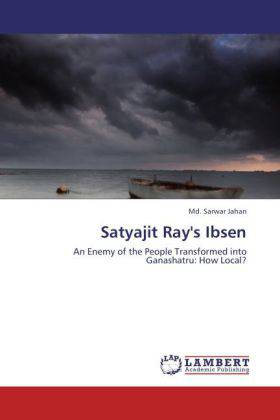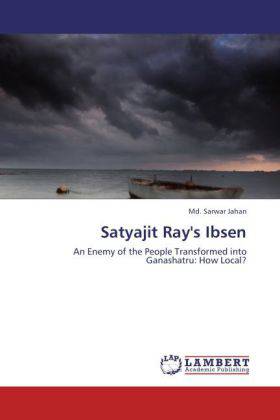
- Afhalen na 1 uur in een winkel met voorraad
- Gratis thuislevering in België vanaf € 30
- Ruim aanbod met 7 miljoen producten
- Afhalen na 1 uur in een winkel met voorraad
- Gratis thuislevering in België vanaf € 30
- Ruim aanbod met 7 miljoen producten
Zoeken
Satyajit Ray's Ibsen
An Enemy of the People Transformed into Ganashatru: How Local?
Sarwar Jahan
Paperback | Engels
€ 59,95
+ 119 punten
Omschrijving
Henrik Ibsen, the father of modern drama, is still popular and well read around the world for his universal appeal and relevance. It must have been a great challenge for Satyajit Ray, legendary Indian film maker, to adapt Ibsen's play for the film medium for a completely different people with a different culture. This transformation has brought a new outlook in the film Ganashatru. Ganashatru is a strong critique of religion and the corrupt practices emerging out of this institution. I became interested in Ray's interventions and adjustments that he brought in his film to expose hypocrisy and religious corruption. I was also very much interested in showing how Ray relates the evils to his contemporary time and place to make it a local experience.
Specificaties
Betrokkenen
- Auteur(s):
- Uitgeverij:
Inhoud
- Aantal bladzijden:
- 84
- Taal:
- Engels
Eigenschappen
- Productcode (EAN):
- 9783848402106
- Verschijningsdatum:
- 17/07/2012
- Uitvoering:
- Paperback
- Afmetingen:
- 152 mm x 229 mm
- Gewicht:
- 136 g

Alleen bij Standaard Boekhandel
+ 119 punten op je klantenkaart van Standaard Boekhandel
Beoordelingen
We publiceren alleen reviews die voldoen aan de voorwaarden voor reviews. Bekijk onze voorwaarden voor reviews.







